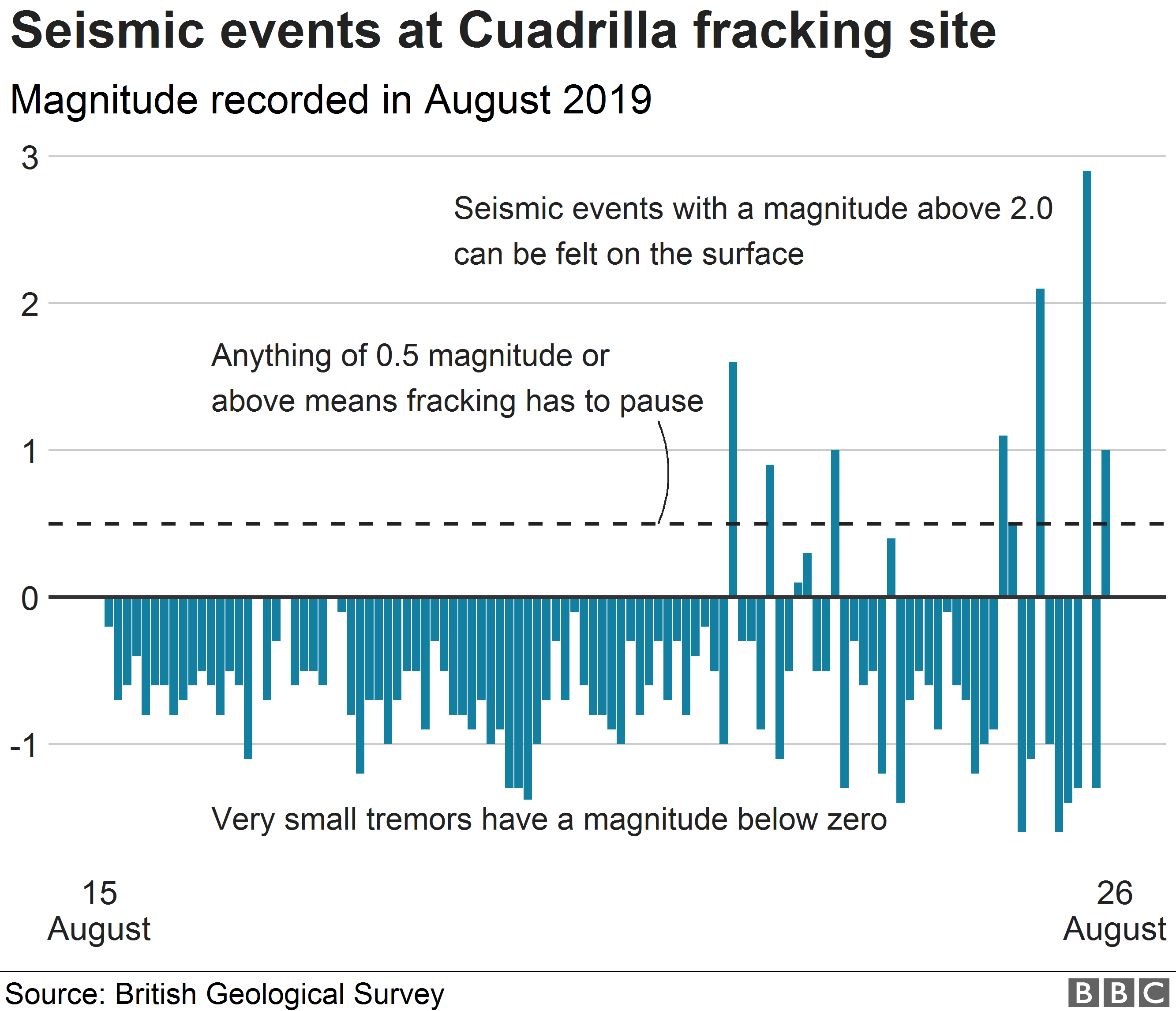The government has called a halt to shale gas extraction – or fracking – in England amid fears about earthquakes.
The indefinite suspension comes after a report by the Oil and Gas Authority (OGA) said it was not possible to predict the probability or size of tremors caused by the practice.
Business Secretary Andrea Leadsom said it may be temporary – imposed “until and unless” extraction is proved safe.
Labour, Lib Dems and the Green Party want a permanent ban.
Fracking was suspended at the end of August after activity by Cuadrilla Resources – the only company licensed to carry out the process – at its Preston New Road site in Lancashire caused a magnitude 2.9 earthquake.
The Department for Business, Energy and Industrial Strategy said that, after the OGA concluded that further seismic activity could not be ruled out, “further consents for fracking will not be granted” unless the industry “can reliably predict and control tremors” linked to the process.
However, it has stopped short of an outright ban.

Asked on BBC Radio 4’s Today programme why that was, Mrs Leadsom said shale gas is a “huge opportunity” for the UK.
“We will follow the science and it is quite clear that we can’t be certain. The science isn’t accurate enough to be able to assess the fault lines, the geological studies have been shown to be inaccurate. So therefore, unless and until we can be absolutely certain, we are imposing a moratorium,”
she said.
Opposition leader Jeremy Corbyn tweeted that the pause was an “election stunt” and that Labour would ban fracking permanently.
Former Conservative energy minister Sam Gyimah, who is now a Liberal Democrat, said Mr Johnson’s “conversion to environmentalism” was “skin deep”.
“It’s interesting that just as we approach an election he has decided he is against fracking.”
Asked whether the UK should explore methods of delivering fracking safely, Green Party co-leader Jonathan Bartley said fossil fuels “need to stay in the ground” and that the government must make an “absolute commitment” to end it altogether.



